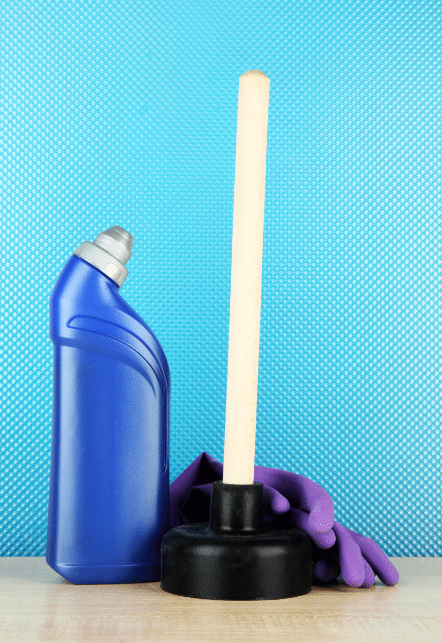Now I ain’t calling you Sydneysiders dirty, but it’s a fact of life that no drain is ever going to stay clean, because no waste water you ever flush away is going to be clean. Of course, any home handyman, not just a plumbing contractor, can tell you that if you want your drain to stop stinking up your home, or even worse, blocking any water from draining at all, the simplest answer is to use a bit of drain cleaner. But have you ever wondered how drain cleaner works, and what it’s actually doing to your pipes?
(image: Shutterstock)
Now there’s a bit of science behind how drain cleaners work, so it’s time to put on your labcoat. The drain cleaners you’ll find on the shelves in supermarkets and the like all work by creating chemical reactions that revolve around moving electrons, be that adding more electrons or taking them away from the clog to create heat.
There are three main types of drain cleaners:
- Caustic – these are generally made from substances like lye or caustic potash, and they give electrons to the clog, and have hydroxide ions that clear the clog. The chemicals behind them also create heat which can make grease into a soap-like substance so it’s more easily dissolved, and these chemicals are often heavier than water so they can sink through standing water to get to the clog.
- Oxidising – this sort of drain cleaner will be made from things like bleach, peroxides, and nitrate, and they make the clog lose electrons and oxidise. Like caustic drain cleaners, oxidising drain cleaners are heavier than water, and they also release heat and gas to move that clog.
- Acid – these are drain cleaners that are often heavily regulated and you won’t find in your local supermarket. They’re made from high concentrations of sulfuric acid or hydrochloric acid, which increase hydronium ions and take electrons away from the clog. The hydronium ions release heat that’ll help dissolve any congealed grease.
The big worry with using any of these drain cleaners is that they produce heat, which can in extreme cases cause PVC pipes to soften. However, you shouldn’t have any problems if you use the product as directed, and they’re best not used in older, metal pipes.






